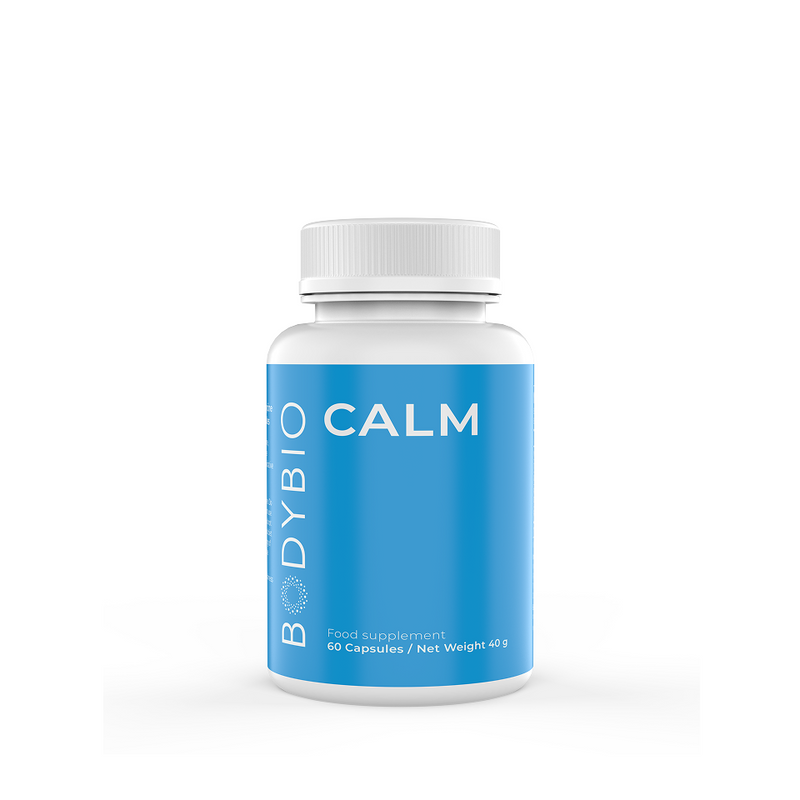How to Calm Your Nervous System: Regulation Benefits, 11 Techniques, & More
Key Takeaways:
Key Points:
- Your nervous system controls your overall state of calm and contentment. It also plays a huge role for those suffering from anxiety and panic attacks.
- Resetting and regulating your nervous system requires strategic and mindful practice, not just self-care rituals.
- By maintaining a calm nervous system over time, you can boost your quality of life and increase your lifespan.
- Nervous system work supports cellular health, especially endothelial cells.
More than 30% of modern adults experience symptoms of an anxiety disorder in their lifetime.
Read that again.
Not just anxiety. An anxiety disorder.
As a society, we have more access to news and information than any other civilization in the history of the world. Often, the first thing we see in the morning is our phone — full of headlines that slam the gas pedal on our adrenaline and send our nervous system into a state of full-blown panic.
This continual influx of adrenaline can wear on our nervous system, making it more difficult for our bodies to respond to our own stressful experiences. But first, we need to understand how this dynamic works.
Let’s learn about the nervous system, what causes it to overload and overreact, and how we can practice calming the nervous system for a less stressed-out, more peaceful life.
Table of Contents:
- What is an Overactive Nervous System?
- How Stress Affects Your Nervous System
- How to Reset & Regulate Your Nervous System
- Benefits of Maintaining a Calm Nervous System as You Age
- Herbs or Supplements to Calm Your Nervous System?
What is an Overactive Nervous System?
The nervous system is a complex network of nerves and cells that transmit signals between different parts of the body. It consists of two main components — the central nervous system (CNS), which includes the brain and spinal cord, and the peripheral nervous system (PNS), which extends throughout the rest of the body.
An overactive nervous system, often referred to as sympathetic dominance or chronic stress, occurs when the body is in a constant state of heightened alertness. This state is characterized by an excessive release of stress hormones, such as cortisol and adrenaline, leading to a "fight or flight" response even in non-threatening situations. This prolonged activation can negatively impact various physiological processes. An overactive nervous system may cause symptoms like:
- Anxiety
- Insomnia
- Panic attacks
- Feelings of hopelessness
- Exhaustion
- Hypertension (high blood pressure)
- Poor digestion
- Insulin resistance
Fisher, J. P., Young, C. N., & Fadel, P. J. (2009). Central sympathetic overactivity: maladies and mechanisms. Autonomic neuroscience : basic & clinical, 148(1-2), 5–15. https://doi.org/10.1016/j.autneu.2009.02.003
Heirene, R. M., Shearer, D., Roderique-Davies, G., & Mellalieu, S. D. (2016). Addiction in Extreme Sports: An Exploration of Withdrawal States in Rock Climbers, Journal of Behavioral Addictions J Behav Addict, 5(2), 332-341. Retrieved Jun 14, 2022, from https://akjournals.com/view/journals/2006/5/2/article-p332.xml
König, N., Steber, S., Seebacher, J., von Prittwitz, Q., Bliem, H. R., & Rossi, S. (2019). How Therapeutic Tapping Can Alter Neural Correlates of Emotional Prosody Processing in Anxiety. Brain sciences, 9(8), 206. https://doi.org/10.3390/brainsci9080206
Yu, C. P., Lin, C. M., Tsai, M. J., Tsai, Y. C., & Chen, C. Y. (2017). Effects of Short Forest Bathing Program on Autonomic Nervous System Activity and Mood States in Middle-Aged and Elderly Individuals. International journal of environmental research and public health, 14(8), 897. https://doi.org/10.3390/ijerph14080897
Krucoff, M. O., Rahimpour, S., Slutzky, M. W., Edgerton, V. R., & Turner, D. A. (2016). Enhancing Nervous System Recovery through Neurobiologics, Neural Interface Training, and Neurorehabilitation. Frontiers in neuroscience, 10, 584. https://doi.org/10.3389/fnins.2016.00584
Breit, S., Kupferberg, A., Rogler, G., & Hasler, G. (2018). Vagus Nerve as Modulator of the Brain-Gut Axis in Psychiatric and Inflammatory Disorders. Frontiers in psychiatry, 9, 44. https://doi.org/10.3389/fpsyt.2018.00044
Zemla, K., Sedek, G., Wróbel, K., Postepski, F., & Wojcik, G. M. (2023). Investigating the Impact of Guided Imagery on Stress, Brain Functions, and Attention: A Randomized Trial. Sensors, 23(13), 6210. MDPI AG. Retrieved from http://dx.doi.org/10.3390/s23136210
Ekholm, B., Spulber, S., & Adler, M. (2020). A randomized controlled study of weighted chain blankets for insomnia in psychiatric disorders. Journal of clinical sleep medicine : JCSM : official publication of the American Academy of Sleep Medicine, 16(9), 1567–1577. https://doi.org/10.5664/jcsm.8636
Mahindru, A., Patil, P., & Agrawal, V. (2023). Role of Physical Activity on Mental Health and Well-Being: A Review. Cureus, 15(1), e33475. https://doi.org/10.7759/cureus.33475
Maiuolo, J., Gliozzi, M., Musolino, V., Carresi, C., Nucera, S., Macrì, R., Scicchitano, M., Bosco, F., Scarano, F., Ruga, S., Zito, M. C., Oppedisano, F., Mollace, R., Paone, S., Palma, E., Muscoli, C., & Mollace, V. (2019). The Role of Endothelial Dysfunction in Peripheral Blood Nerve Barrier: Molecular Mechanisms and Pathophysiological Implications. International journal of molecular sciences, 20(12), 3022. https://doi.org/10.3390/ijms20123022
Pongratz, G., & Straub, R. H. (2023). Chronic effects of the sympathetic nervous system in inflammatory models. Neuroimmunomodulation, 10.1159/000530969. Advance online publication. https://doi.org/10.1159/000530969
Nakamura, Y., Park, J. H., & Hayakawa, K. (2020). Therapeutic use of extracellular mitochondria in CNS injury and disease. Experimental neurology, 324, 113114. https://doi.org/10.1016/j.expneurol.2019.113114






